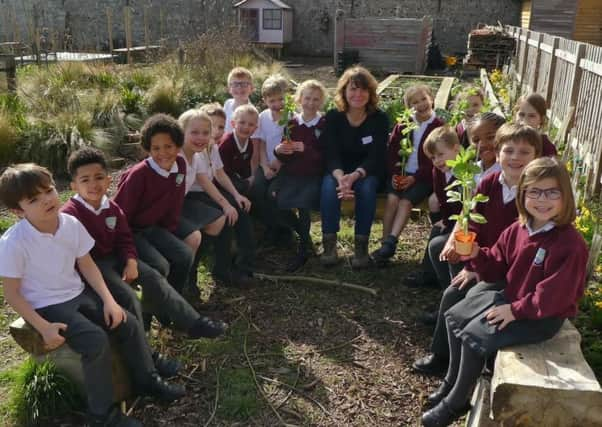Gildredge House is habitat for pollinating insects


As a part of the UK wide Polli:Nation programme, the school has embarked on a project to promote the possibilities of learning outside the classroom and raise awareness of the needs of local pollinators by making changes to their school grounds.
This has included hundreds of hours of parents’, staff and children’s time being spent on creating natural play and learning environments that have brought the whole community into closer contact with these very important pollinators.
Advertisement
Hide AdAdvertisement
Hide AdLast year Gildredge House was chosen as one of 260 Polli:Nation schools across the UK that will develop their grounds to help increase the number of pollinator-friendly habitats in Britain.
By adding new hedging, nectar rich play spaces and a living roof, the school hopes to increase the population and diversity of pollinating insect species in Eastbourne.
The school’s project is being completed with the help of Claire Shoosmith, who has coordinated the fundraising and supported Hazel Court Special FE unit and the Haven Primary as well as Gildredge House Free school.
Claire has a background in horticulture and the arts and has driven this project with a passion to make better places for both children and wildlife.
Advertisement
Hide AdAdvertisement
Hide AdWith the help of the national school grounds charity – Learning Through Landscapes – the children, staff and parents have been able to equip themselves to develop pollinator friendly planting through the key stage one outdoor learning and play area.
They have been able to establish pollinator friendly hedges around the front of the school and put in place a living roof on the top of an equipment store. They also plan to improve their woodland, build on their horticultural studies area and support the contractors to reduce the mowing around the edges of the school grounds, to support nesting pollinators.
As part of the three-year Polli:Nation project, the school is also participating in UK-wide survey from OPAL Imperial College London.
The school’s findings will help scientists to develop an accurate understanding of the current state of the habitats for Britain’s pollinating insects.